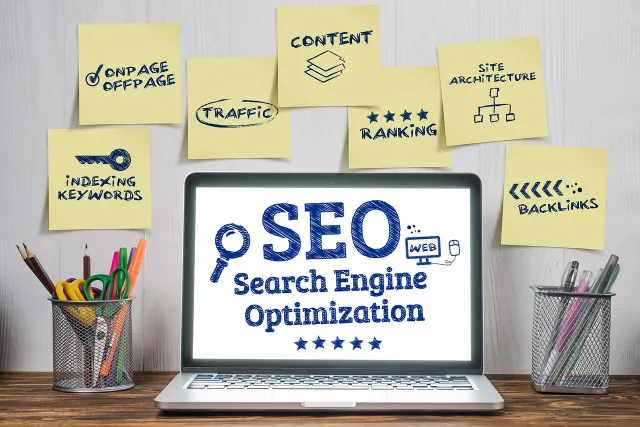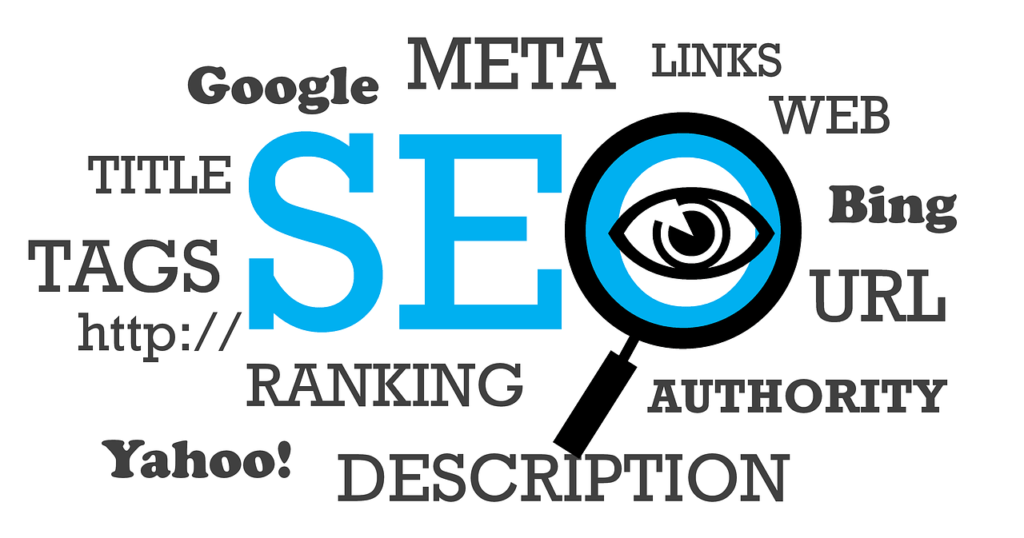Are you tired of your website being buried on the 10th page of Google search? Do you want to improve your online visibility and attract more traffic to your website? Look no further than SEO. By optimizing your website and online content for SEO, you can improve your search engine rankings and drive more organic traffic to your site. SEO is not just a buzzword; it is a powerful tool that can help businesses of all sizes and industries thrive in the competitive online marketplace. So, if you want to stand out from the crowd and reach your target audience, it’s time to invest in SEO and watch your website soar to the top of the search results.
As all online businesses need SEO, there are plenty of SEO job opportunities flooding the market. Some well-known profiles under SEO include SEO Managers and SEO Specialists. According to data from Glassdoor and PayScale, the average base pay for an SEO Manager in the United States is around $76,000 per year. However, salaries can range from as low as $43,000 to as high as $120,000 per year. In India, the average base pay for an SEO Manager is around ₹6 lakhs per year. Salaries can range from ₹2.5 lakhs to as high as ₹18 lakhs per year. If you’re looking to seize such a golden opportunity, consider a professional certificate program in digital marketing. Key features of such programs include master classes, “ask me anything” sessions, industry projects, and more. You’ll benefit from in-depth knowledge of search engine optimization, content marketing, web analytics, keyword management, and more. So, what are you waiting for? Hurry up and find the course link in the description box below!
Now, let’s answer a question:
What is the purpose of SEO?
- Option 1: To drive organic traffic
- Option 2: Improving online visibility
- Option 3: Improve search engine rankings
- Option 4: All of the above
Let us know your answers in the comment section below and get a heart from Simply Learn. Also, don’t forget to subscribe to Simply Learn and hit the bell icon to never miss any updates from us.
Let’s not procrastinate any longer. In this article, we’ll begin by understanding different types of SEO, followed by what exactly Off-Page SEO is, the difference between On-Page and Off-Page SEO, the importance of Off-Page SEO, and top 5 Off-Page optimization techniques.
Types of SEO
There are three types of SEO: On-Page SEO, Off-Page SEO, and Technical SEO.
On-Page SEO:
refers to optimizing individual pages or web pages to improve their search engine rankings and drive more traffic to a website. This includes optimizing elements such as title tags, meta descriptions, headings, content, interlinking, and website structure.
Off-Page SEO
refers to optimizing a website’s external factors that affect its search engine rankings, such as link building, social media, and brand mentions. The goal of Off-Page SEO is to increase the authority and relevance of the website, thereby improving its search engine ranking.
Technical SEO
refers to optimizing a website’s technical aspects to improve search engine ranking. This includes elements such as website speed, mobile responsiveness, site architecture, and structured data. Technical SEO is critical for ensuring that search engines can crawl and index your website effectively.
In this article, we’ll focus mainly on Off-Page SEO techniques.
What is Off-Page SEO?
Off-Page SEO refers to the optimization of external factors that can affect a website’s search engine ranking but are not directly related to the content or structure of the website itself. This includes building high-quality backlinks to the website from reputable sources, engaging your audience on social media platforms, and building your brand’s online reputation through mentions and reviews. Off-Page SEO is essential for establishing a website’s authority and relevance in search engine rankings. Search engines use backlinks and other off-site signals to determine the credibility and popularity of a website, which can impact its search engine rankings. A strong Off-Page SEO strategy can help a website attract more organic traffic, improve search engine rankings, and ultimately increase its visibility and online reputation.
Difference Between On-Page and Off-Page SEO
The main difference between On-Page and Off-Page SEO is that On-Page SEO involves optimizing elements on the website’s individual pages, while Off-Page SEO focuses on optimizing external factors that can impact a website’s search engine ranking. On-Page SEO includes optimizing elements such as title tags, meta descriptions, headings, content, images, and interlinking to improve the relevance and understandability of the website’s pages for search engines. Off-Page SEO includes activities like link building, social media engagement, and online reputation management.
Importance of Off-Page SEO
Off-Page SEO is important for improving the search engine ranking of a website by establishing its authority and relevance. Search engines use external factors such as backlinks, social media engagement, influencer outreach, and online reputation management to determine the credibility and popularity of a website. Getting backlinks from other reputable websites is a critical factor in Off-Page SEO, as it signals to search engines that the content on the linked website is valuable and relevant. Social media engagement, influencer outreach, and online reputation management can increase brand awareness and improve search engine rankings.
Link and Non-Link Related Off-Page SEO Factors
Link-Related Factors:
- Number and quality of external links pointing to a website
- Anchor text used in external links
- Relevancy of external links to the content of the linked website
- Freshness and diversity of external links from different domains
- Authority and trustworthiness of domains linking to the website
Non-Link Related Factors:
- Social media engagement and activity
- Online reputation management including reviews and ratings
- Brand mentions and citations on other websites
- Influencer outreach and partnerships
- Local SEO strategies such as Google My Business optimization and local directories
- Content marketing efforts including guest blogging and social media sharing
Top 5 Off-Page Optimization Techniques
- Link Building: Acquire high-quality backlinks from authoritative and relevant websites through guest blogging, broken link building, influencer outreach, and other techniques.
- Social Media Engagement: Engage with your target audience on social media platforms to build brand awareness and improve your online visibility.
- Online Reputation Management: Monitor and manage your business’s online reputation by responding to reviews, engaging with customers, and monitoring mentions of your business online.
- Local SEO Optimization: Optimize your Google My Business listings, build local citations, and participate in local directories to improve your visibility in local search results.
- Content Marketing: Create and share valuable content such as blog posts, infographics, and videos to attract backlinks, social shares, and other forms of engagement that can improve your search engine rankings over time.
Helpful Tools for Off-Page SEO
Here are some helpful tools for Off-Page SEO practices:
- Moz: All-in-one SEO tool for keyword research, link building, and online reputation management.
- Majestic: Provides comprehensive backlink data and SEO metrics for link building and competitor analysis.
- Ahrefs: Powerful SEO tool for backlink analysis and competitor research.
- SEMrush: All-in-one SEO tool for keyword research, backlink analysis, and social media engagement.
- Ninja Outreach: Helps with influencer outreach and link building campaigns.
- Pitchbox: Manages personalized outreach campaigns for link building and influencer outreach.
- BuzzStream: Streamlines link building efforts and manages relationships with website owners.
- Google Alerts: Monitors online mentions of your business or brand.
- Hootsuite: Manages and schedules social media content across multiple platforms.
- Mention: Monitors online mentions across social media, news sites, and other platforms.
Jobs and Salaries in Off-Page SEO
Off-Page SEO jobs include roles like Link Building Specialist, SEO Outreach Coordinator, Digital Marketing Specialist, and Content Marketing Manager. Salaries vary based on experience, job title, location, and company size. Entry-level positions may start around $35,000 to $45,000 per year in the US, while senior roles like SEO Manager can earn up to $100,000 per year. In India, entry-level positions start around ₹2.5 to ₹4 lakhs per year, with senior roles earning up to ₹10 lakhs per year or more.
In conclusion, Off-Page SEO is an essential component of any successful digital marketing strategy. By building a strong online reputation and acquiring high-quality backlinks, businesses can improve their search engine rankings, drive more organic traffic to their website, and ultimately increase their revenue. With effective Off-Page SEO techniques and tools, businesses can stay ahead of the competition and achieve long-term success in the online marketplace.
If you found this article helpful, don’t forget to subscribe our newsletter to Simply Learn for more insights into SEO. Thank you for reading!





















